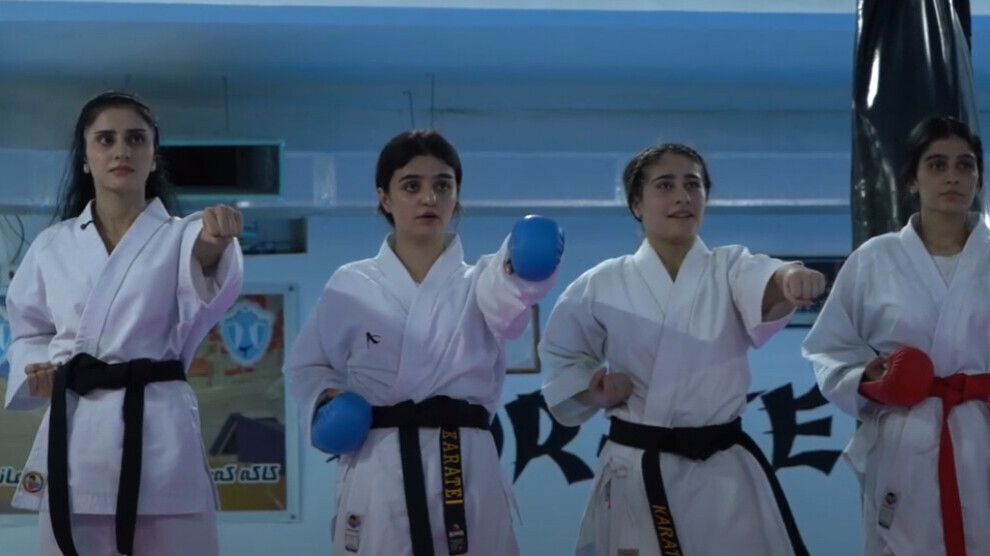Young women in Halabja learn karate
Young women in Halabja, Kurdistan Region, are learning karate - building confidence, their physical and mental strength.

MEHRIBAN SALAM
Halabja – Although Halabja has officially become a governorate and overcomes many challenges, women’s participation in sports remains limited. However, the Sirwan Club, a karate center in the governorate stands out as a notable exception, attracting young women’s attention who not only practice the sport but also work as coaches.
Sirwan Club is currently making efforts to compete in the Asian Karate Championship, with the participation of many young women aiming to achieve significant success and prove themselves in the world of sport.
Ayendeh Mohammed, a karate coach at Sirwan Club, expressed pride in her journey, having spent seven years training in martial arts at the center. She now holds a black belt, a testament to her high level of expertise. She noted that the number of female athletes at the club continues to increase, with the team now comprising 48 women, who have competed in many tournaments and achieved notable results.
Addressing the challenges faced by women in sports, she said, “Unfortunately, in the Kurdistan Region, there are fewer tournaments specifically for women. If more competitions were available, the number of female athletes would increase significantly, as every achievement stems from a goal. My goal is to be a successful coach, help develop the athletes’ skills, and share my experience so they do not repeat my mistakes. I also aspire to become a distinguished referee in this field.”
One of the biggest challenges faced by female athletes is the social perception saying that sports are a male-dominated area, said Ayendeh Mohammed, who wants to become a qualified referee and coach after earning her black belt and competing in numerous international tournaments, she said: “Many families prevent their daughters from doing karate because they see it as a violent sport. However, karate builds self-confidence, helps manage stress, and offers many physical benefits. I urge families to support their daughters so they can discover and experience this sport.”
Players committed to training
Bre Niyazi, a karate athlete who has trained at the club for five years and holds a black belt, said, “Thanks to our coaches’ guidance, we have won many international awards. However, in Iraq, the sport does not receive enough attention although karate is an art of self-defense.”
She added, “My goal has always been to win first place in competitions, and to be selected for the Iraqi national team. I hope we can compete in the Asian Championship. Girls, just like boys, can compete and win medals.”
Social stigma keeps girls out of sports
Rejiar Mohammed, 17, who has done karate for seven years, thinks that negative social attitudes toward women in sports are one of the biggest challenges faced by girls in Halabja.
“I am grateful to my family for supporting me and giving me the chance to win many medals in competitions. My goal is to prove that girls can succeed and compete just as well as boys. Our coaches have been incredibly supportive throughout this journey. While harsh words from the community often try to hold us back, our families see things differently—they encourage us to persevere, ignore the critics, and continue competing.”
